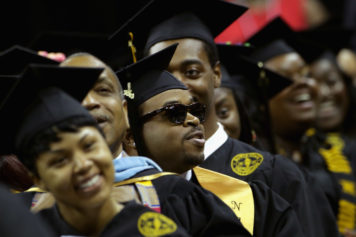In an important decision for HBCUs across the nation, a federal judge ruled this week that the state of Maryland perpetuates segregation in higher education by permitting better-funded traditionally white institutions to offer up the same degree programs, discouraging enrollments at historically black colleges.
In a 60-page decision, Judge Catherine C. Blake found that certain high-demand specialty programs duplicated by traditionally white schools — a form of “separate but equal” — encouraged segregation among campuses by drawing students from the state’s black schools, which historically have been underfunded.
Blake suggested several remedies to repair the situation: mediation, new niche areas for black schools and the possible transfer or merger of some programs.
Though she largely ruled in favor of the HBCUs, Judge Blake rejected other claims brought by the HBCUs—as an example, she found no evidence that the state’s funding system is inherently discriminatory, even if black institutions receive less money than do their white counterparts.
Michael D. Jones, lead lawyer for the black college advocates, called the ruling “extraordinarily significant” for historically black colleges over all. He said addressing the program duplication issue will result in a major infusion of state support to historically black colleges.
According to Jones, it was the issue of duplicative programs that first led supporters of black colleges to plan the lawsuit.
“This is a very important finding — one Maryland fought all the way,” he said.
A statement from Democratic Governor Martin O’Malley’s office emphasized the judge’s ruling that the funding system used by the state was not discriminatory.
“[W]e are proud of the multitude of excellent academic programs that exist throughout the state, and we respectfully disagree with the court’s conclusions regarding duplication. We are continuing to review today’s decision and are considering all of our options, including resolving the lone remaining issue through constructive mediation,” the statement said.
HBCUs in other states had been anxiously awaiting Judge Blake’s ruling because they are considering the tactic of suing states over inequitable treatment.


